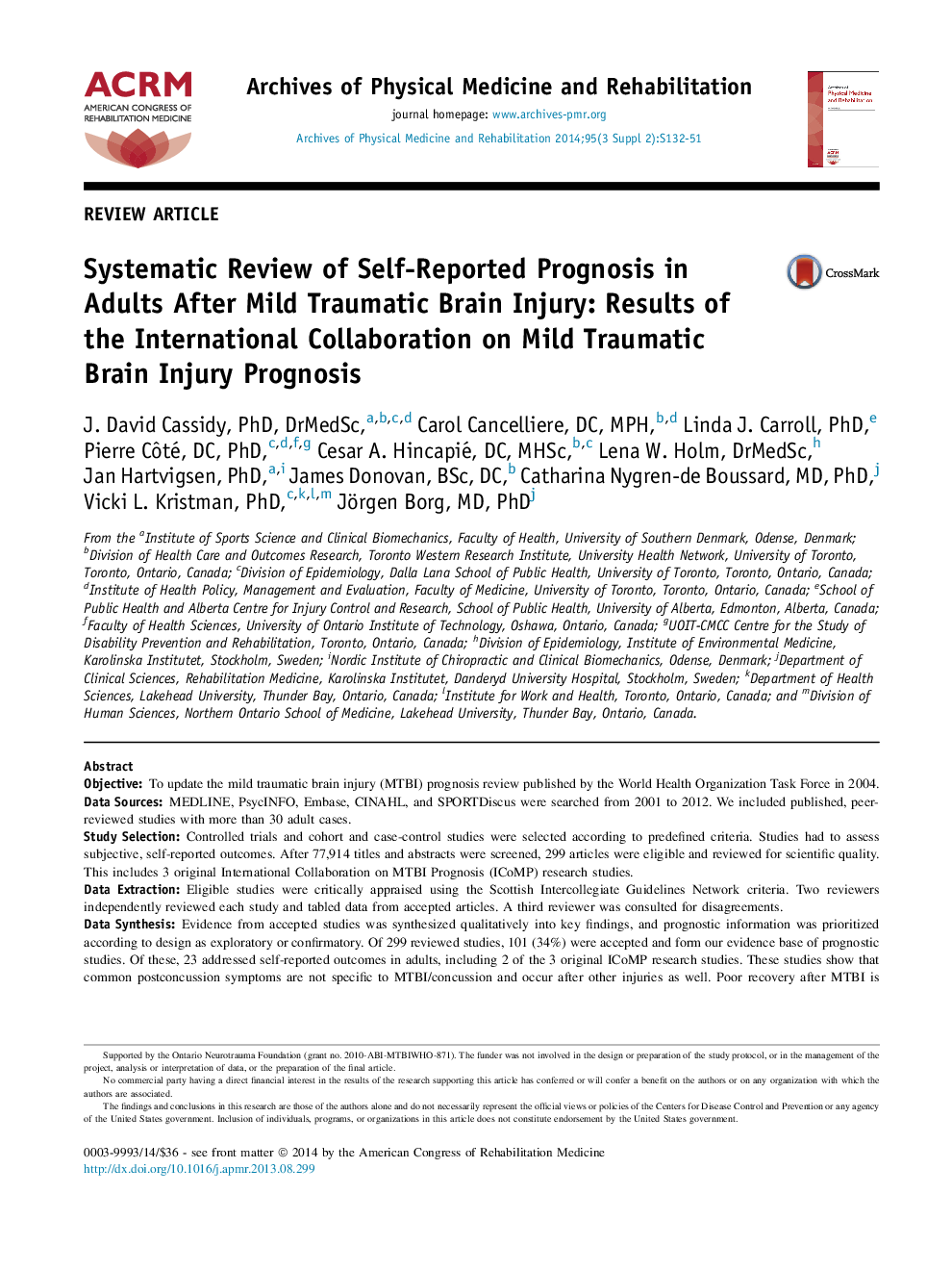| کد مقاله | کد نشریه | سال انتشار | مقاله انگلیسی | نسخه تمام متن |
|---|---|---|---|---|
| 3448399 | 1595700 | 2014 | 20 صفحه PDF | دانلود رایگان |
ObjectiveTo update the mild traumatic brain injury (MTBI) prognosis review published by the World Health Organization Task Force in 2004.Data SourcesMEDLINE, PsycINFO, Embase, CINAHL, and SPORTDiscus were searched from 2001 to 2012. We included published, peer-reviewed studies with more than 30 adult cases.Study SelectionControlled trials and cohort and case-control studies were selected according to predefined criteria. Studies had to assess subjective, self-reported outcomes. After 77,914 titles and abstracts were screened, 299 articles were eligible and reviewed for scientific quality. This includes 3 original International Collaboration on MTBI Prognosis (ICoMP) research studies.Data ExtractionEligible studies were critically appraised using the Scottish Intercollegiate Guidelines Network criteria. Two reviewers independently reviewed each study and tabled data from accepted articles. A third reviewer was consulted for disagreements.Data SynthesisEvidence from accepted studies was synthesized qualitatively into key findings, and prognostic information was prioritized according to design as exploratory or confirmatory. Of 299 reviewed studies, 101 (34%) were accepted and form our evidence base of prognostic studies. Of these, 23 addressed self-reported outcomes in adults, including 2 of the 3 original ICoMP research studies. These studies show that common postconcussion symptoms are not specific to MTBI/concussion and occur after other injuries as well. Poor recovery after MTBI is associated with poorer premorbid mental and physical health status and with more injury-related stress. Most recover over 1 year, but persistent symptoms are more likely in those with more acute symptoms and more emotional stress.ConclusionsCommon subjective symptoms after MTBI are not necessarily caused by brain injury per se, but they can be persistent in some patients. Those with more initial complaints and psychological distress recover slower. We need more high-quality research on these issues.
Journal: Archives of Physical Medicine and Rehabilitation - Volume 95, Issue 3, Supplement, March 2014, Pages S132–S151
